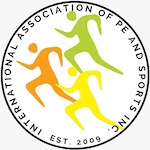Gerakan Olimpiade dan Pengaruhnya Terhadap Gaya Hidup Aktif Masyarakat Indonesia
Abstract
Olimpiade merupakan perhelatan olahraga terbesar karena diikuti oleh hampir seluruh negara yang ada di 5 benua di dunia yang tercermin dari 5 cincin yang saling berkait sebagai logonya. Sejak diadakan pada tahun 776 SM yang dikenal dengan olimpiade kuno hingga olimpiade modern pertama pada tahun 1896 di Athena, olimpiade tetap konsisten menggaungkan olympism sebagai filosofinya yaitu meningkatkan dan menggabungkan secara seimbang kualitas tubuh, kehendak dan pikiran manusia secara utuh. Olimpiade bukan hanya perkara adu gengsi prestasi keolahragaan tiap negara, tetapi mampu menjadi gerakan olimpiade bagi masyarakat dunia yaitu peningkatan gaya hidup aktif menjadi salah satu poin penting bagaimana olimpiade memberikan intervensi terhadap masyarakat yang semakin dipengaruhi oleh pesatnya industrialisasi terutama bagi negara berkembang seperti Indonesia. Kebijakan pemerintah diharapkan menjadi kekuatan utama sebagai pilar untuk mengokohkan bangsa, terutama bagaimana menjadikan Indonesia sebagai negara yang akan beranjak dan berusaha mengikuti ritme dunia saat ini dengan tetap menjadikan gaya hidup aktif sebagai sumber kekuatan utama dalam mengimplementasikan semangat olimpiade. Karena faktanya tidak banyak atlet Indonesia yang mampu berbicara pada ajang olimpiade menjadi gambaran nyata rendahnya kesadaran masyarakat Indonesia terhadap gaya hidup aktif, karena atlet elit lahir dari partisipasi masyarakat terhadap olahraga. Bahkan selama 68 tahun digelarnya olimpiade, Indonesia hanya mampu mengantarkan sebanyak 331 atlet atau hanya setengah dari jumlah atlet yang dikirimkan oleh China dalam sekali ajang olimpiade yaitu sebanyak 596 pada tahun 2008. Meski begitu, secara perlahan tapi pasti kebijakan pemerintah terus berupaya selaras dengan semangat olimpiade yaitu meningkatkan gaya hidup aktif masyarakat agar kedepan semakin banyak terlahir atlet-atlet Indonesia yang mampu berlaga dalam olimpiade dan mengharumkan negara
References
Clemente-Suárez, V. J., Fuentes-García, J. P., de la Vega Marcos, R., & Martínez Patiño, M. J. (2020). Modulators of the Personal and Professional Threat Perception of Olympic Athletes in the Actual COVID-19 Crisis. Frontiers in Psychology, 11(August), 1–7. https://doi.org/10.3389/fpsyg.2020.01985
Costa, M. J., Garrido, N. D., Marinho, D. A., & Santos, C. C. (2021). How much the swimming performance leading to Tokyo 2020 olympic games was impaired due to the covid-19 lockdown? Journal of Sports Science and Medicine, 20(4), 714–720. https://doi.org/10.52082/jssm.2021.714
Demarie, S., Chirico, E., & Galvani, C. (2022). Prediction and Analysis of Tokyo Olympic Games Swimming Results : Impact of the COVID-19 Pandemic on Swimmers ’ Performance. International Journal of Environmental Research and Public Health, 19(2110).
Firgo, M. (2021). Regional Science and Urban Economics The causal economic effects of Olympic Games on host regions. Regional Science and Urban Economics, 88(December 2019), 103673. https://doi.org/10.1016/j.regsciurbeco.2021.103673
Girginov, V., & Preuss, H. (2022). Towards a conceptual definition of intangible Olympic legacy. International Journal of Event and Festival Management, 13(1), 1–17. https://doi.org/10.1108/IJEFM-03-2021-0025
Ha, J., Lee, K., & Ok, G. (2016). The International Journal of the History of Sport From Development of Sport to Development through Sport : A Paradigm Shift for Sport Development in South Korea. The International Journal of the History of Sport, 3367(February). https://doi.org/10.1080/09523367.2015.1062756
Hoang, V. T., Al-Tawfiq, J. A., & Gautret, P. (2020). The Tokyo Olympic Games and the Risk of COVID-19. Current Tropical Medicine Reports, 7(4), 126–132. https://doi.org/10.1007/s40475-020-00217-y
Kavasoglu, İ., Kaplan, A., & Yenel, F. (2021). Instagram Posts Of Turkish Olympic Athlete In The Covid-19 Pandemic. International Journal of Recreation and Sports Science, 5(1), 19–30. https://doi.org/10.46463/ijrss.882243
Kelly, S., Melnyk, B. M., & Hoying, J. (2020). Adolescents as Agents of Parental Healthy Lifestyle Behavior Change: COPE Healthy Lifestyles TEEN Program. Journal of Pediatric Health Care, 34(6), 575–583. https://doi.org/10.1016/j.pedhc.2020.06.012
Khaptsova, A., & Fruchtmann, J. (2020). Why Russians love the Olympic Games : How individual values and nationalism motivate attitudes towards the Olympics. International Review for the Sociology of Sport. https://doi.org/10.1177/1012690220957526
Koenigstorfer, J., & Preuss, H. (2018). Perceived Values in relation to the Olympic Games: development and use of the Olympic Value Scale. European Sport Management Quarterly, 18(5), 607–632. https://doi.org/10.1080/16184742.2018.1446995
Lawrence, E., Mollborn, S., Pampel, F., & Goode, J. (2020). Health Lifestyles and the Transition to Adulthood. Socius: Sociological Research for a Dynamic World, 6. https://doi.org/10.1177/2378023120942070
Lee, J. W. (2021). Olympic Winter Games in Non-Western Cities: State, Sport and Cultural Diplomacy in Sochi 2014, PyeongChang 2018 and Beijing 2022. International Journal of the History of Sport, 38(13–14), 1494–1515. https://doi.org/10.1080/09523367.2021.1973441
Majumdar, B. (2021). How Covid changed sport–a case study of the 2020 Tokyo Olympic Games. Sport in Society, 0(0), 1–7. https://doi.org/10.1080/17430437.2021.1975963
Margono. (2009). Olympiade: Bermula dari Pertempuran Zeus vs Cronus.
Millet, G. P., Brocherie, F., & Burtscher, J. (2021). Olympic Sports Science—Bibliometric Analysis of All Summer and Winter Olympic Sports Research. Frontiers in Sports and Active Living, 3(October 2021). https://doi.org/10.3389/fspor.2021.772140
Müller, M., Wolfe, S. D., Gaffney, C., Gogishvili, D., Hug, M., & Leick, A. (2021). An evaluation of the sustainability of the Olympic Games. Nature Sustainability, 4(4), 340–348. https://doi.org/10.1038/s41893-021-00696-5
Murakami, M., Miura, F., Kitajima, M., Fujii, K., Yasutaka, T., Iwasaki, Y., Ono, K., Shimazu, Y., Sorano, S., Okuda, T., Ozaki, A., Katayama, K., Nishikawa, Y., Kobashi, Y., Sawano, T., Abe, T., Saito, M. M., Tsubokura, M., Naito, W., & Imoto, S. (2021). COVID-19 risk assessment at the opening ceremony of the Tokyo 2020 Olympic Games. Microbial Risk Analysis, 19(November 2020), 100162. https://doi.org/10.1016/j.mran.2021.100162
Peters, M. D. J., Marnie, C., Tricco, A. C., Pollock, D., Munn, Z., Alexander, L., McInerney, P., Godfrey, C. M., & Khalil, H. (2020). Updated methodological guidance for the conduct of scoping reviews. JBI Evidence Synthesis, 18(10), 2119–2126. https://doi.org/10.11124/JBIES-20-00167
Qidwai, W., Ishaque, S., Shah, S., & Rahim, M. (2010). Adolescent lifestyle and behaviour: A survey from a developing country. PLoS ONE, 5(9), 1–6. https://doi.org/10.1371/journal.pone.0012914
Rachmi, C. N., Li, M., & Alison Baur, L. (2017). Overweight and obesity in Indonesia: prevalence and risk factors—a literature review. Public Health, 147, 20–29. https://doi.org/10.1016/j.puhe.2017.02.002
Rajab, T. M., Saquib, J., Rajab, A. M., Enabi, S., Ayash, S. Q. S., Abdelrahman, S. A. A., Khojah, M. A. A., Almazrou, A., & Saquib, N. (2021). The associations of religiosity and family atmosphere with lifestyle among Saudi adolescents. SSM - Population Health, 14, 100766. https://doi.org/10.1016/j.ssmph.2021.100766
Rumaji, & Adiliya, A. (2019). Port Maritime Connectivity in South-East Indonesia: A New Strategic Positioning for Transhipment Port of Tenau Kupang. Asian Journal of Shipping and Logistics, 35(4), 172–180. https://doi.org/10.1016/j.ajsl.2019.12.004
Sofa, I. M. (2018). Kejadian Obesitas, Obesitas Sentral, dan Kelebihan Lemak Viseral pada Lansia Wanita. Amerta Nutrition, 2(3), 228. https://doi.org/10.20473/amnt.v2i3.2018.228-236
Stapleton, J., Carter, C., & Bredahl, L. (2020). Research consultations in the academic library: A scoping review on current themes in instruction, assessment and technology. Journal of Academic Librarianship, 46(4), 102156. https://doi.org/10.1016/j.acalib.2020.102156
Tokuda, Y., & Kuniya, T. (2021). Prediction of COVID-19 cases during Tokyo’s Olympic and Paralympic Games. Journal of General and Family Medicine, 22(4), 171–172. https://doi.org/10.1002/jgf2.465
Uchida, T., & Araya, R. (2021). Applications of the Atmospheric Transport and Diffusion of les Modeling to the Spread and Dissipation of COVID-19 Aerosol Particles inside and outside the Japan National Stadium (Tokyo Olympic Stadium). Modelling and Simulation in Engineering, 2021. https://doi.org/10.1155/2021/8822548
Wong, A. Y. Y., Ling, S. K. K., Louie, L. H. T., Law, G. Y. K., So, R. C. H., Lee, D. C. W., Yau, F. C. F., & Yung, P. S. H. (2020). Impact of the COVID-19 pandemic on sports and exercise. Asia-Pacific Journal of Sports Medicine, Arthroscopy, Rehabilitation and Technology, 22, 39–44. https://doi.org/10.1016/j.asmart.2020.07.006
Yamamura, E., & Tsutsui, Y. (2020). The impact of postponing 2020 tokyo olympics on the happiness of O-MO-TE-NA-SHIWorkers in tourism: A consequence of COVID-19. Sustainability (Switzerland), 12(19), 1–16. https://doi.org/10.3390/su12198168

This work is licensed under a Creative Commons Attribution 4.0 International License.


















